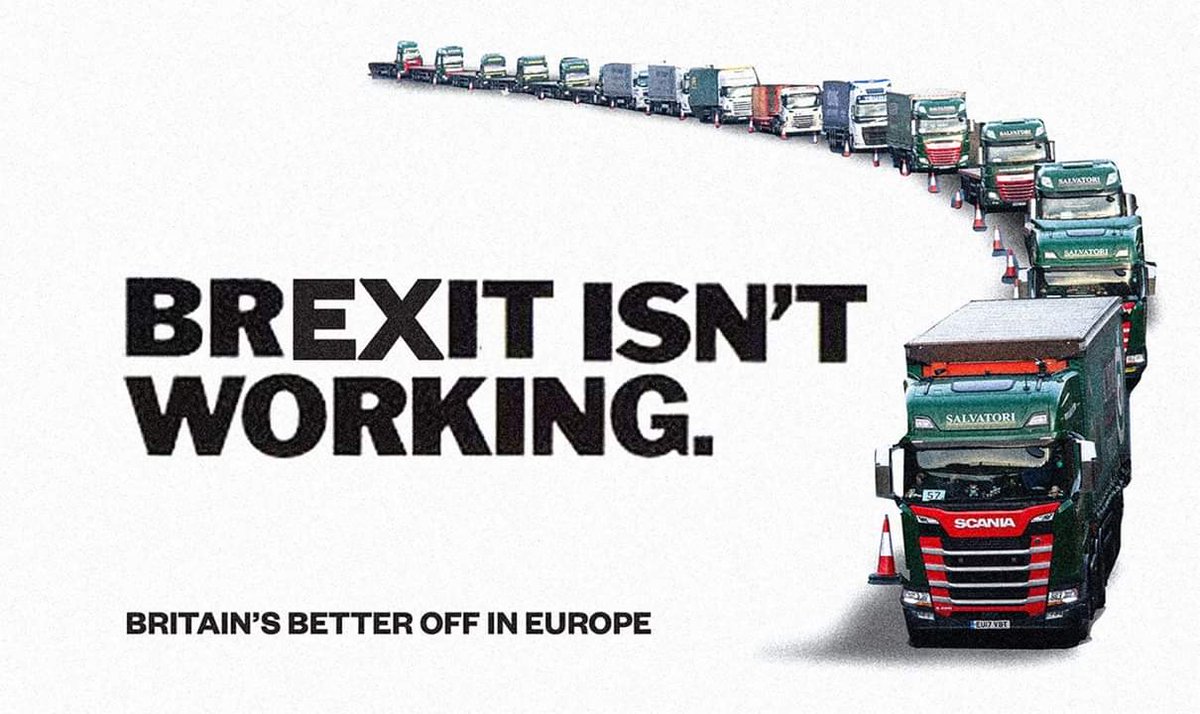Change to ‘Cabotage’ rules will hurt British firms and workers. It’s the latest sign that Brexit economic nationalism isn’t working
As the UK continues to experience a chronic shortage of HGV drivers, the government has been forced to ask foreign firms for additional help.

With soldiers called on to ease the petrol shortages, and with panic-buying abating, the HGV crisis has moved out of the headlines for now. But the structural issues driving the crisis in the industry and the shortage of drivers remains – and the government is increasingly concerned that Christmas could be negatively impacted.
In the latest step to try and address these problems, the Transport Secretary, Grant Shapps, has announced plans to allow EU firms to undertake more ‘cabotage’ trips in the UK. As we’ve discussed on Brexit Spotlight, this refers to undertaking haulage jobs in a different jurisdiction to the one in which the company is registered.
The UK-EU trade deal reduced the number of ‘cabotage jobs’ firms (i.e., UK businesses working in the EU; and vice versa) could undertake in a one week period from 3 to 2. But in a signal of how serious the British crisis is, the government has brought forward proposals to allow foreign firms to undertake unlimited cabotage trips in a two week period. These rights would be extended to companies from 43 states (members of the European Conference of Ministers of Transport, ECMT). Connected to the Organisation for Economic Cooperation and Development (OECD), this body includes EU countries, as well as former members of the USSR (e.g. Russia, Georgia, and Belarus), the former Yugoslavia (e.g. Bosnia), and some North African states (Tunisia and Morocco).
Unlike the arrangements between EU states, the ECMT does not currently provide any system of cabotage rights. And the government have explicitly acknowledged their proposals, “mark a departure from the principle of reciprocity (equal rights on both parties in an agreement) as UK-based hauliers would gain no more rights as a result of this move”.
Bosses and workers again unite to condemn government policy
Not for the first time in the government’s HGV crisis response, these proposals have united British workers and bosses in opposition.
It’s an example of how Brexit is revealing itself as an exercise in flawed economic nationalism with a clear pattern emerging. Leaving the single market intensifies the effects of the global supply chain crisis. The government then responds with emergency measures that ironically advantage EU businesses – and disadvantage the British firms competing with them. So, Brexit nationalism ends up helping businesses on the European side.
UK haulage companies now have reduced access to work in the European single market, due to the cuts in cabotage rights. However, they will now face competition for domestic work by European firms who can make unlimited journeys in two weeks, compared to the limited number British companies are allowed to do in the EU. What’s more, they will face further competition from firms based in non-EU countries with no reciprocal cabotage rights.
Meanwhile, for workers, the policy will open up the UK labour market to competition from firms employing workers on lower pay. This risks setting back the progress that is being made on wages.
Unite general secretary Sharon Graham said: “Poor pay and terrible conditions have forced UK drivers to leave the haulage industry and helped create this crisis.
“The government now proposes to allow overseas companies to force their drivers to stay in the UK making deliveries for two weeks without guaranteed safeguards like decent accommodation. This will do nothing to address the chronic problems we face.
“Instead of tackling low pay and poor conditions the government is instead sponsoring the exploitation of drivers and the undercutting of terms and conditions on Britain’s roads.”
In the European single market, there have long been concerns that the cabotage system created a dynamic in this direction – though the limit of 3 trips is very different from the UK’s government’s proposal to abolish all limits. This was a factor in recent EU reforms aimed at improving European HGV drivers pay and conditions across the continent. This approach seeks to create a level-playing field, working to develop strong employment regulation to protect the rights of all workers, regardless of nationality (either of the worker or the company they are employed for). Much more than this could be done, of course. But it is a striking contrast to the government’s policy which seems determined to level down.
The latest UK policy shift is also an admission of failure. As predicted by many, the government’s derisory visa offer has fallen flat, with scarcely any recruits signing up. A scheme that promised 5,000 new drivers on Britain’s roads has had just 300 applicants and only 20 recruits. Now their latest plan amounts to a sweeping attempt at labour market deregulation, risking a new race to the bottom. It’s a far cry from the ‘high wages, high productivity’ economy that we’ve been promised.
October 18, 2021
Brexit Spotlight is run by Another Europe Is Possible. You can support this work by joining us today. The website is a resource to encourage debate and discussion. Published opinions do not necessarily represent those of Another Europe.





